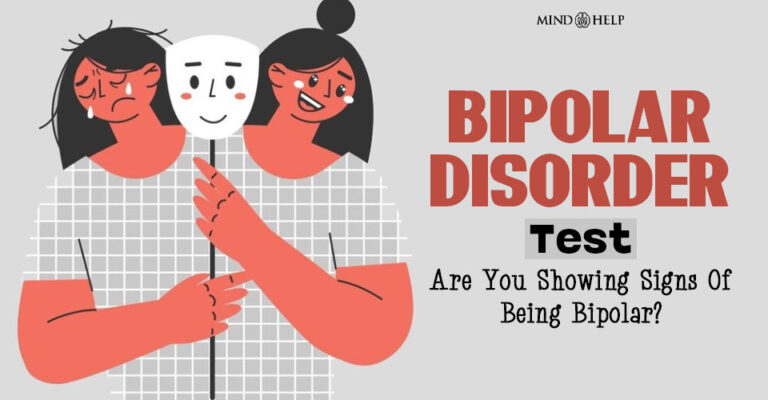Are you someone who often feels bored in your daily life? Do you often lack motivation, energy and excitement even in things and activities that you always liked to do? Do you frequently get restless and just do not know how to relax and unwind? Or, do you feel that time is passing way too slowly? Take this boredom proneness test to know whether you have a proneness to get bored or not.
What Is Boredom Proneness?
Boredom proneness is a form of mental fatigue that occurs when your environment fails to hold your attention or interest. Research suggests that boredom is a psychological state, not just a symptom of apathy or depression.
It is associated with various risky behaviors and mental health issues. Individuals with high traits in boredom proneness are vulnerable to increased symptomology of attention deficit-hyperactivity disorder (ADHD), executive dysfunction, problematic gambling, substance abuse, and increased aggression and depression.
The signs of boredom proneness are the following:
- Finding it hard to focus and concentrate.
- Feeling a constant need for stimulation.
- Unable to enjoy, relax or unwind.
- Switching interests and hobbies frequently.
- Always feeling irritated in routine settings.
- Feeling restless and empty all the time.
- Having a low tolerance when it comes to waiting and delays.
Instructions For Taking Boredom Proneness Test
Below is a list of statements that relate to an individual’s signs of boredom proneness. Please read each statement carefully, and select options that you find relevant for you.
Please note: This test is a self-assessment and not a diagnostic test.
No. of questions – 15
Quiz Summary
0 of 15 Questions completed
Questions:
Information
You have already completed the quiz before. Hence you can not start it again.
Quiz is loading…
You must sign in or sign up to start the quiz.
You must first complete the following:
Results
Results
Your time:
Time has elapsed
You have reached 0 of 0 point(s), (0)
Earned Point(s): 0 of 0, (0)
0 Essay(s) Pending (Possible Point(s): 0)
Categories
- Not categorized 0%
-
Low signs of boredom proneness
Your present score reveals that you have a low sign of boredom proneness. It can be evident from your score that a few times you might get bored in continuing activities of everyday life and might lack a little interest and energy engaging in things even which you might prefer. Further, it can be indicated from your score that in a few cases, you might feel that the same kind of thing may get repeated on social platforms and you might feel a little exhausted and bored thinking about the fact that you may have to face a new same day again. Besides this, it can be seen from your response that you may feel a little restless in situations where you have to wait for something or someone and a few times don’t even understand how to make yourself relax. Furthermore, it might also be possible that to avoid boredom a few times you might involve yourself imagining something else than the task or might possibly sleep during your work time.
However, it should be noted that your responses may have an impact on your social, occupational, and other areas of functioning. if you think the results do not accurately match your characteristics, then we would encourage you to consult a Psychologist for an accurate result. -
Moderate signs of boredom proneness
Your present score reveals that you have a moderate sign of boredom proneness. It can be evident from your score that in some cases you might get bored in continuing activities of everyday life and might lack interest and energy in some cases engaging in things even which you might prefer. Further, it can be indicated from your score that in some cases, you might feel that the same kind of thing seems to get repeated on social platforms and you might feel somewhat exhausted and bored thinking about the fact that you may have to face a new same day again. Besides this, it can be seen from your response that sometimes you may feel restless in situations where you have to wait for something or someone and sometimes don’t even understand how to make yourself relax. Furthermore, it might also be possible that to avoid boredom often you might involve yourself imagining something else than the task or might possibly sleep during your work time.
However, it should be noted that your responses may have some impact on your social, occupational, and other areas of functioning. if you think the results do not accurately match your characteristics, then we would encourage you to consult a Psychologist for an accurate result. -
High signs of boredom proneness
Your present score reveals that you have a high sign of boredom proneness. It can be evident from your score that in most cases you might get bored in continuing activities of everyday life and might strongly lack interest and energy engaging in things even which you might prefer. Further, it can be indicated from your score that in most possible cases, you seem to feel that the same kind of thing seems to get repeated on social platforms and you seem to feel very much exhausted and bored thinking about the fact that you may have to face a new same day again. Besides this, it can be seen from your response that most often you may feel restless in situations where you have to wait for something or someone and in most possible times don’t even understand how to make yourself relax. Furthermore, it might also be possible that to avoid boredom very often you seem to involve yourself imagining something else than the task or might possibly sleep during your work time.
However, it should be noted that your responses may have a strong impact on your social, occupational, and other areas of functioning. if you think the results do not accurately match your characteristics, then we would encourage you to consult a Psychologist for an accurate result.
- Review
- Answered
- Correct
- Incorrect
-
Question 1 of 15
1. Question
-
Question 2 of 15
2. Question
-
Question 3 of 15
3. Question
-
Question 4 of 15
4. Question
-
Question 5 of 15
5. Question
-
Question 6 of 15
6. Question
-
Question 7 of 15
7. Question
-
Question 8 of 15
8. Question
-
Question 9 of 15
9. Question
-
Question 10 of 15
10. Question
-
Question 11 of 15
11. Question
-
Question 12 of 15
12. Question
-
Question 13 of 15
13. Question
-
Question 14 of 15
14. Question
-
Question 15 of 15
15. Question
Frequently Asked Questions (FAQs)
1. What did Einstein say about boredom?
Einstein said “Creativity is the residue of time wasted.” about boredom.
2. Is boredom a feeling?
Boredom is an signal or emotion that tells you that what you are doing is not giving you satisfaction and happiness.
3. What personality is easily bored?
Extroverts tend to get bored very easily.
Quiz Summary
0 of 15 Questions completed
Questions:
Information
You have already completed the quiz before. Hence you can not start it again.
Quiz is loading…
You must sign in or sign up to start the quiz.
You must first complete the following:
Results
Results
Your time:
Time has elapsed
You have reached 0 of 0 point(s), (0)
Earned Point(s): 0 of 0, (0)
0 Essay(s) Pending (Possible Point(s): 0)
Categories
- Not categorized 0%
-
Low signs of boredom proneness
Your present score reveals that you have a low sign of boredom proneness. It can be evident from your score that a few times you might get bored in continuing activities of everyday life and might lack a little interest and energy engaging in things even which you might prefer. Further, it can be indicated from your score that in a few cases, you might feel that the same kind of thing may get repeated on social platforms and you might feel a little exhausted and bored thinking about the fact that you may have to face a new same day again. Besides this, it can be seen from your response that you may feel a little restless in situations where you have to wait for something or someone and a few times don’t even understand how to make yourself relax. Furthermore, it might also be possible that to avoid boredom a few times you might involve yourself imagining something else than the task or might possibly sleep during your work time.
However, it should be noted that your responses may have an impact on your social, occupational, and other areas of functioning. if you think the results do not accurately match your characteristics, then we would encourage you to consult a Psychologist for an accurate result. -
Moderate signs of boredom proneness
Your present score reveals that you have a moderate sign of boredom proneness. It can be evident from your score that in some cases you might get bored in continuing activities of everyday life and might lack interest and energy in some cases engaging in things even which you might prefer. Further, it can be indicated from your score that in some cases, you might feel that the same kind of thing seems to get repeated on social platforms and you might feel somewhat exhausted and bored thinking about the fact that you may have to face a new same day again. Besides this, it can be seen from your response that sometimes you may feel restless in situations where you have to wait for something or someone and sometimes don’t even understand how to make yourself relax. Furthermore, it might also be possible that to avoid boredom often you might involve yourself imagining something else than the task or might possibly sleep during your work time.
However, it should be noted that your responses may have some impact on your social, occupational, and other areas of functioning. if you think the results do not accurately match your characteristics, then we would encourage you to consult a Psychologist for an accurate result. -
High signs of boredom proneness
Your present score reveals that you have a high sign of boredom proneness. It can be evident from your score that in most cases you might get bored in continuing activities of everyday life and might strongly lack interest and energy engaging in things even which you might prefer. Further, it can be indicated from your score that in most possible cases, you seem to feel that the same kind of thing seems to get repeated on social platforms and you seem to feel very much exhausted and bored thinking about the fact that you may have to face a new same day again. Besides this, it can be seen from your response that most often you may feel restless in situations where you have to wait for something or someone and in most possible times don’t even understand how to make yourself relax. Furthermore, it might also be possible that to avoid boredom very often you seem to involve yourself imagining something else than the task or might possibly sleep during your work time.
However, it should be noted that your responses may have a strong impact on your social, occupational, and other areas of functioning. if you think the results do not accurately match your characteristics, then we would encourage you to consult a Psychologist for an accurate result.
- Review
- Answered
- Correct
- Incorrect
-
Question 1 of 15
1. Question
-
Question 2 of 15
2. Question
-
Question 3 of 15
3. Question
-
Question 4 of 15
4. Question
-
Question 5 of 15
5. Question
-
Question 6 of 15
6. Question
-
Question 7 of 15
7. Question
-
Question 8 of 15
8. Question
-
Question 9 of 15
9. Question
-
Question 10 of 15
10. Question
-
Question 11 of 15
11. Question
-
Question 12 of 15
12. Question
-
Question 13 of 15
13. Question
-
Question 14 of 15
14. Question
-
Question 15 of 15
15. Question




